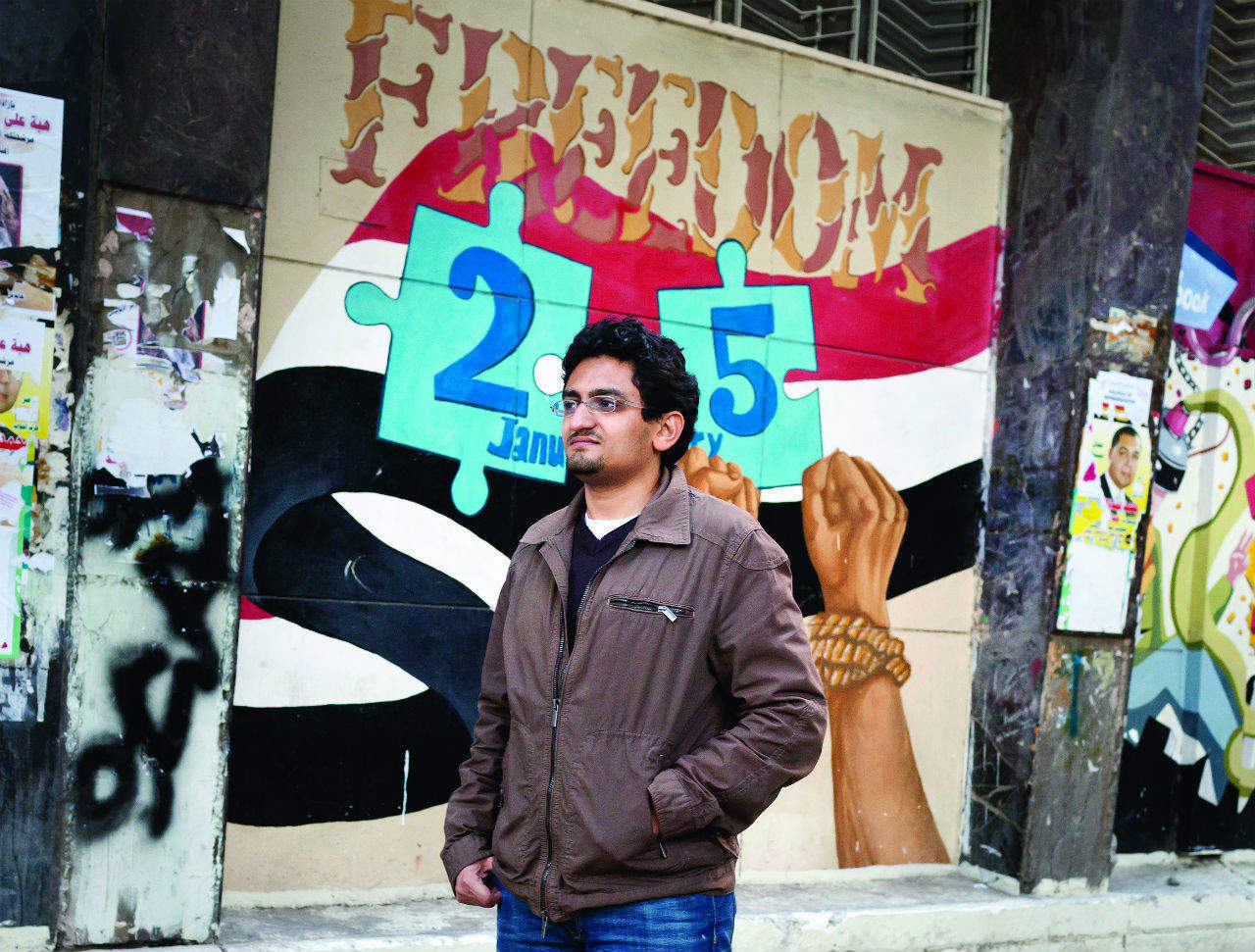“The fate of nations should be decided by their own people”
How does it feel to be the face of the Egyptian Revolution?
I don’t think I am the face; I don’t think there should be a face. It’s unfair to those who sacrificed their lives.
What prompted you to set up the Facebook page “We are all Khaled Said”, which got you arrested by the Mubarak regime and brought you to global prominence?
It was injustice. I’m a patriotic Egyptian, and it was my response to a dictatorship run by security forces that were making everyone scared, using the psychological barrier of fear and the propaganda machine of the media and spreading corruption. I didn’t just want to mourn and forget [the killing of the 28-year-old blogger Said by the Egyptian police] after a few days, like everyone else. I knew how to manage Facebook pages and so that’s how it all started.
Do you resent the west’s decades-long support for Hosni Mubarak and his dictatorial regime?
There has been a huge struggle of “values v interests” for so many years. I don’t appreciate the fact that countries which talk of human rights and democracy then go and support dictatorships based on their interests. The west likes to talk about values, but acts based on interests. I believe that the fate of nations should be decided by their own people.
Did you support the west’s war in Libya?
The Libya situation is very tricky. Every nation has the right to decide its own destiny. It’s not my personal decision to support or oppose an intervention; it should be decided by the people. It’s important to see what happens in the next few years. Libya has a lot of oil resources and there are a lot of countries very interested in those resources.
What inspired you to you write your memoir, Revolution 2.0?
I wanted to share my experiences so that other people [in other countries] can do useful things based on my experiences. In this world, we don’t really speak to each other; there are lots of misconceptions and stereotypes. A lot of people in the west have only now started to understand that we Arabs share the same universal values, a belief in democracy and human rights. But it’s not what they hear on the news.
Why did you choose that title?
From my point of view, the older style of revolution was to have a leader. But in our revolution, and other revolutions that took place in the Arab world, it was a leaderless movement. Everyone was contributing. It was the difference between Web 1.0, where most of the internet was content that users just read and watched, to Web 2.0, where users have started to communicate and collaborate with one another on content. In Revolution 2.0, no one is a leader – everyone is a leader.
What should be done about Bashar al-Assad in Syria, who has turned out to be a more durable and brutal dictator than Mubarak?
I’m not in a position to say what the Syrian people should do. I support the revolution in Syria because it is the same revolution as our own. It is very important that the international community put all sorts of pressure on Syria with an eye to avoid any more casualties.
When will the people of Saudi Arabia join the Arab spring?
I think every dictatorship will have a hard time over the next few years, in this era of communication and collaboration. And I believe eventually even Saudi Arabia will become more open.
Are you worried by the success of the Muslim Brotherhood in the recent Egyptian elections?
No. The western media, and even some sections of the Arab media, are basically taking a very pessimistic view. But what is going on here is very healthy. The Muslim Brotherhood was the strongest party and got almost 50 per cent of the seats. So we should give democracy a chance and respect the choices of the Egyptian people. What matters is that the country should be on the right road map for democratic transition, away from military rule.
Has the Arab spring become an Arab winter?
No, these revolutions take a lot of sacrifices. The Egyptian Revolution is going through hard times but I don’t think it is going wrong. One of the best things is that it has no leader who wants to become another dictator. Across the Arab world, empowerment is taking place. People are now strong enough to stand up to injustice and, because of technology and communication and collaboration, these revolutions are going to go in the right direction.
Do you vote?
For the first time in my life, I just voted.
Is there a plan?
No, I have a set of values in my life and the plan keeps changing based on them.
Are we doomed?
I am an optimist. No country or civilisation can continue with people who believe they are doomed. I force myself to wake up every morning believing the world can be a better place.
Defining moments
1980 Born in Cairo
2007 Gains MBA in marketing and finance from the American University in Cairo
2008 Begins working at Google
2010 Promoted to head of marketing. Sets up Facebook fan page for Mohamed ElBaradei
2011 Returns to Egypt to join the revolution. Is detained by security agents
2011 Establishes tech NGO in Egypt
2012 Publishes his book, Revolution 2.0 (Harper Press, £14.99)






